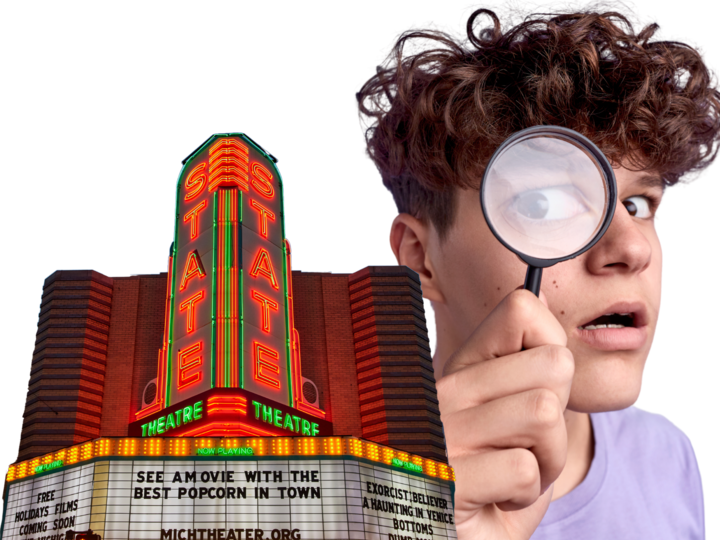The following 298H seminars are 3 credit hour classes. They are open to all University Honors Program students. Enrollment in these courses will generally follow regular University enrollment procedures and occur on a first-come, first-served basis in accordance with your assigned priority registration times, unless otherwise noted.
Each course may meet additional degree requirements, such as ACE or college required hours. Specifics are noted with each course. If you think a course may be eligible to count towards hours in your major, please check with your major advisor about this possibility.
If this is your final semester and you have an unmet 298H or ACE need AND you have difficulties getting into a course section that meets those needs, contact Dr. Tamy Burnett ASAP.
Previous semesters' courses
Spring 2026
UHON 298H (Interdisciplinary)
Eureka! Intellectual Creativity in Action
Prof. Christine Haney Douglass
TR 11:00-12:15pm │ Knoll
ACE 2
This course is an interdisciplinary seminar in which you will hear from a variety of professors from different fields. They will tell you their stories including any "eureka" moments of enlightenment, how they chose the career paths that they did, discussion of any challenges they had to face, mention of any controversies they encountered and discussion of some of their most rewarding moments along the way. The course will utilize multiple learning strategies that may include but are not limited to group cooperative learning strategies, group discussions, complex situational simulations, open-ended questioning, advanced readings and other multi-media resources.

UHON 298H (Nutrition)
Food as an Issue of Justice
Prof. Georgia Jones
TR 9:30-10:45am │ Knoll
ACE 9
This course is designed to explore the American food system through a diversity lens, focusing specifically on the ethics of production (growing, manufacturing) and distribution systems in the US. We will examine issues of fairness in the food and agricultural industries, food deserts, loss of independent and family-owned grocery stores, and USDA Farm Bill. We will consider the structure of the American food system, who grows the food, who harvests it, and who manufactures it. We will explore questions like: How does the American food system affect those that exists in the margins of society? Why are food deserts mostly in black and brown communities? What is the role of the government in ensuring that all its citizens have access to safe, affordable, culturally appropriate, and nutritious foods?

UHON 298H (Humanities in Medicine)
Plagues, People, and Public Health
Prof. Angela Bolen
MWF 12:30-1:20pm │ Knoll
ACE 5 | CAS CDR Humanities
We will explore the history, progression, impacts, and significance of public health activities from the Black Death to the worldwide AIDS/HIV crisis in the 1980s and 1990s. We will consider the role of public health organizations, understand the impact of major pandemics around the world from the 14th-20th centuries, explore the social, political, economic, and religious influences on and caused by major public health crises, and explore the nature of illness, wellness, healing, and public health within the contexts of race, gender, age, ethnicity, socioeconomic status, and physical ability.

UHON 298H (English/Film)
The Laboratory of the Possible: Science Fiction, Film Adaptations, and Solutions for the Future
Prof. Michael Page
MWF 2:30-3:20pm │ Knoll
ACE 7 | CAS CDR Humanities
Science Fiction is like a "laboratory" where writers "experiment" with possible futures so that we can find solutions. In this seminar, we will read a number of significant and popular science fiction works that have been adapted for film or television, exploring key ideas presented in the texts and the storytelling approaches. Then, we will watch and analyze visual adaptations of these SF works and consider the successes and failures of these adaptations. How do these stories encourage readers and viewers to engage with possible future? How they get us to think about issues facing us in the present? How they suggest solutions for the future?

UHON 298H (Women's and Gender Studies; Interdisciplinary)
Women, Leadership, and Power
Prof. Joann Ross
MW 3:30-4:45pm | Knoll
ACE 9
This class explores key issues related to women, leadership, and power across a broad range of areas in society and women’s lived experiences in/out of power. Disciplinary areas include: activism, agriculture, the arts, athletics, business, education, military service and/or law enforcement, medicine/healthcare, politics/government service, religious leadership, and STEM. In this class, we will visit with guest speakers each week from a variety of backgrounds and professions. Additionally, we will learn about historical and contemporary women leaders, issues related to women and power, and how women navigate modern society as leaders.

UHON 298H (Interdisciplinary; Architecture)
How to Build a Cathedral
Prof. Aaron Pattee
MWF 9:30-10:20am | Architecture Hall
ACE 5
The construction of a cathedral was a marvel of medieval society. It took lots of different people, from architects to engineers, from artists to financiers, and the common laborer. These communal projects not only brought people together but also served a higher purpose. This interdisciplinary course will use the combined efforts, skills, and knowledge of each student in order to research, design, and build a single model of a cathedral as a class. In this hands-on experience, you will learn about the intricate processes behind designing these magnificent buildings, while also gaining invaluable experience collaborating with others from different backgrounds and perspectives toward a common goal.

UHON 298H (Theatre)
Story to Stage: The Practice of Documentary Theatre
Prof. Noelle Rodriguez
MWF 10:30am-11:20am | Knoll
ACE 7
This class will explore the power of theatrical production to tell real stories. through the practices of documentary theatre. We will apply what we learn to content we source ourselves – curiosities, intrigues, challenges, and atrocities – experiences of the world we want to shine a light on. Our focus will be on exploring theatrical tools to tackle “wicked problems” through the collaborative setting of a theatre ensemble and the creative problem solving of the theatrical rehearsal room. The medium of a play allows playwrights, directors, actors, and audiences to grapple with enduring questions and challenges. So, our aim will first be to look at others who have used this process to look at an enduring question, borrow from their experiences to formulate ideas for our own play(s), and then to pitch a project of your own.

UHON 298H (Interdisciplinary)
Honors in Paris
Profs. Tamy Burnett & Nick Gilbert
TR 2:00-3:15pm | Knoll
ACE 9
NOTE: Enrollment in the course is only open to students who have been accepted to this education abroad program. The application deadline is Oct. 1.
In this course, we will explore Paris, examining the city as a “text.” This means we will “read” the city’s complex, intriguing history through visits to important cultural sites in the city. We will learn about Paris from a range of perspectives via guest lectures, exploring a variety of topics as they relate to Paris—including architecture, art, music, culture, food production, and history—and bringing our learning to life via our visit to the city. Travel to Paris will occur during Spring Break. As part of our preparation for our time abroad, we will evaluate different site visit options and collaboratively compose our daily itinerary while in Paris. Once on the ground in France, students will take turns leading our group to different destinations and helping create our experience. Following our visit to Paris, we will engage in a role-playing simulation game about the French Revolution, applying all we have learned and bringing this pivotal moment in history to life.
